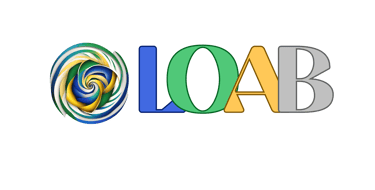Local SEO vs. Traditional SEO: What Small Businesses Need to Know
Explore the differences between local SEO and traditional SEO in our latest blog post. Learn which SEO strategy is best for your small business and how our local SEO services can help you attract more local customers. Discover actionable tips to boost your online presence today!
SEO
Dan Singh
Differences Between Local and Traditional SEO Strategies


In local SEO, the focus is on geographic keywords that target specific areas. Keyword research involves terms with city names, nearby places, and phrases like "near me" or "close by," ensuring businesses appear in searches for services nearby. Google My Business (GMB) plays a crucial role, allowing businesses to manage their Google presence. An optimized GMB profile, along with consistent local citations, boosts visibility and credibility.
Local SEO and traditional SEO have different goals and methods. While both involve:
Keyword research
On-page optimization
Backlink strategies
these strategies diverge due to their target scopes and audiences.
Customer reviews are vital for local SEO. Positive reviews can enhance local rankings, signal reliability, and build trust. Promptly encouraging and responding to reviews can improve search engine performance and local traffic.
Traditional SEO, however, targets a broader audience with general keywords, focusing on creating high-quality, engaging content to attract organic traffic. It also relies on obtaining backlinks from authoritative websites to boost credibility. Unlike local SEO’s focus on local citations, traditional SEO builds link profiles through guest posts and partnerships on a larger scale.
Understanding the differences between local and traditional SEO helps businesses allocate resources effectively. Each approach has distinct strengths and, when used appropriately, can enhance a business’s visibility in its target market.
Local SEO Services are of a great importance to small Businesses. This is invaluable for businesses with a physical presence, especially with the growth of mobile and location-based searches. One major advantage is the ability to appear in the Local Pack—the top three businesses listed on Google’s Map results. SEO for small Business work great
Local SEO also drives foot traffic. By optimizing for local searches, businesses ensure they appear prominently when potential customers look for services nearby. For instance, a local bakery optimized for "bakery near me" can see increased morning walk-ins, as local searches often indicate readiness to make a purchase.
Building trust through local reviews is another benefit. Positive reviews on platforms like GMB can enhance rankings and reputation. Encouraging customer reviews creates a cycle of trust, attracting more clients.
Participate with local community—you can try Local events or partnerships programs this will further strengthens your local SEO. Activities like hosting local author readings can improve community standing and boost both online and offline engagement.
Local SEO provides a strategic advantage, helping small businesses dominate local searches, drive relevant traffic, and build community trust.
Benefits of Local SEO for Small Businesses
When to Combine Local and Traditional SEO ?
Combining local and traditional SEO can be advantageous in several scenarios. For example, a local business with an online store can benefit from both local SEO for attracting nearby customers and traditional SEO for reaching a broader audience. By targeting both local and general product-related keywords, businesses can drive local traffic and online sales.
Service providers looking to expand beyond their local area should integrate both strategies. Local SEO can attract nearby clients, while traditional SEO helps position the business as a broader industry leader. A consultancy firm, for instance, might use local SEO to dominate city-specific searches and traditional SEO to enhance national visibility.
A hybrid approach ensures long-term growth by building a strong online presence. Combining both SEO strategies allows businesses to target local clients while growing their brand recognition and authority.
Measuring Success in Local vs. Traditional SEO
To measure SEO success, use distinct metrics for local and traditional SEO. For local SEO, track:
Local search rankings using tools like Moz Local and BrightLocal
GMB insights on views, clicks, and calls
Customer reviews from platforms like Yelp and Google Reviews
Local online engagement, including social media interactions and local backlinks
Traditional SEO metrics include:
Organic traffic from search engines
Try using tools like SEMrush / Ahrefs to check Keyword ranking
Domain authority, indicating ranking potential
Conversion rates from visitor actions, such as purchases or contact forms
Use tools like Google Analytics for traffic and conversion monitoring and SEMrush or Ahrefs for keyword and domain authority analysis. Local SEO focuses on community and immediate engagement, while traditional SEO aims for broader visibility and influence.
Combining Local and Traditional SEO can be beneficial for businesses with both a physical presence and an online store. This hybrid approach helps attract local customers while also reaching a broader audience.
Measuring Success:
Local SEO Metrics: Local search rankings, GMB insights, customer reviews, and local online engagement.
Traditional SEO Metrics: Organic traffic, domain authority, and conversion rates.
Types of SEO Platforms
WordPress SEO: Focuses on optimizing content and site structure on WordPress sites. Includes using plugins like Yoast SEO for meta tags, sitemaps, and more. You can also see more SEO articles on DesignRush
Shopify SEO: Tailored for e-commerce sites using Shopify. Involves optimizing product pages, improving site speed, and managing backlinks.
Local SEO: Targets specific geographic areas through local citations, GMB optimization, and localized content.
Technical SEO: Deals with site architecture, crawlability, and indexing issues to ensure search engines can effectively navigate and rank your site.
Content SEO: Centers on creating high-quality, relevant content to attract and engage visitors while targeting specific keywords.
Mobile SEO: Focuses on optimizing sites for mobile devices, ensuring fast load times and responsive design.
On-Page SEO: Involves optimizing individual pages for relevant keywords, including meta descriptions, headings, and internal linking.
Off-Page SEO: Refers to activities outside of your website, like backlink building and social media engagement, to improve site authority and ranking.
By understanding these SEO types and their applications, businesses can better tailor their strategies to achieve optimal results.
Conclusion:
Making the Right SEO Choices
Each strategy has unique advantages, serving different business goals.
Businesses reliant on local foot traffic benefit from local SEO, which focuses on optimizing GMB profiles and local citations. Traditional SEO, on the other hand, involves content marketing, link building, and technical SEO to rank globally or within a broader industry.
Measure success using appropriate metrics for each strategy. Local SEO metrics include local rankings and GMB insights, while traditional SEO metrics focus on organic traffic and domain authority. Evaluate your current SEO performance and business goals to decide which approach—or a combination—is most beneficial. Consulting an SEO Agency can also help tailor strategies to your needs, ensuring efficient and aligned efforts for business success.
2,88,500+
Ready to speak with our
Marketing Experts ?
+1 -562-285-7586


LEADS GENERATED
FOR CLIENTS
$25,70900+
REVENUE GENERATED
FOR CLIENTS
230400+
HOURS OF
EXPERTISE
010
EXPERTS @ WORK


Explore how we can contribute to the expansion of your business
_____________________________________________________________________________________________________________________________________________________________________________________________________________________________________________
+91 -826-419-1159
_____________________________________________________________________________________________________________________________________________________________________________________________________________________________________________
Company
Our commitment to excellence, innovation, and tailored solutions ensures your journey to success is guided by expertise you can trust.
Copyright © 2024 LOAB Solutions. ALL RIGHTS RESERVED
Know us
Contact us
Digital Marketing
GBP SEO
International SEO
Franchise SEO
Whitelabel SEO
Technical SEO
Design Services
Website designing
Website redesigning
Ecommerce website design
Landing page Design
Social media design
Your goals and our Experts
We are just a call Away
Learning Center
SEO
PPC
Social Media
Case study
Services
Facebook Ads
Linkedin Ads
SEO Case Study
Google Ads
Tiktok Ads
Link Building
Facebook Case Study
PPC Case Study
Portfolio
_____________________________________________________________________________________________________________________________________________________________________________________________________________________________________________
25, GOLDEN CITY, MUNDI KHARAR, SAS NAGAR-KHARAR-PB eMAIL : CONNECT@LOAB.IN
